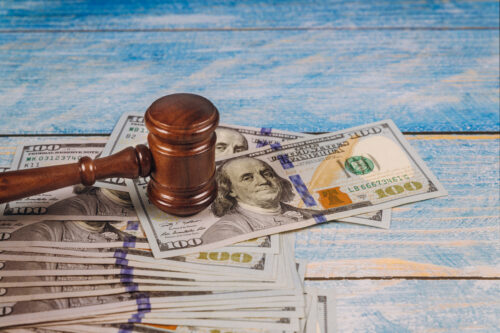
If you’ve been arrested in New York, you may wonder how to get released from jail as soon as possible. Fortunately, there are ways for a defendant to obtain temporary freedom. If a defendant pays the jail a set of money through an agreement known as bail, they will retain conditional release until their specified court date. Please continue reading to learn about the bail bonds process in New York and how a talented Nassau County Criminal Defense Attorney can help you understand your legal options.
What are bail bonds?
Following an arrest, you will be booked, and a judge will set a bail amount that you or your family can pay to obtain your temporary release from jail until your specified court date. Although defendants are given this opportunity, bail can be set very high depending on the specific circumstances of your criminal offense. Certain criminal offenses and correctional facilities also enforce standard bail amounts. If defendants have insufficient money to cover their bail, they can turn to a bail bonds agency.
A bail bond is a contract that a defendant signs promising that they will show up for their trial or pay a specific amount of money as determined by the court. A bail bondsman cosigns the bail bond. They charge the defendant a fee for guaranteeing payment for their temporary release from jail. Essentially, the bail bond serves as a surety that the defendant will appear in court on the specified date of their trial.
How do they work in New York?
During a bail hearing, the judge will set the amount required for bail at their discretion. The judge may deny bail if a defendant is viewed as a flight risk or has been charged with a violent crime. It is also imperative to note that they can set it at an astronomical amount, hindering a defendant’s ability to obtain this temporary release.
After the judge has set the bail amount, the defendant can either remain in jail until the charges are resolved in court, pay the bail amount in full, or arrange for a bail bond. Pursuing the bail bond route means providing the bail bondsman up to 10% of the bail amount upfront in return for their services. They usually also require the defendant to place collateral as property or securities if they do not provide payment for their services or fail to appear in court. Generally, any valuable property, such as jewelry, cars, and even houses, is put up as collateral.
Once the bail bond is delivered, the defendant will be released from jail until their trial date. However, it is imperative to note that if a defendant fails to show up to any court proceedings, responsibility will fall on the bail bond agency to pay the total amount of bail to the court. Failing to appear in court can result in losing any collateral and being brought back to jail.
If you’ve been arrested, it is in your best interest to retain the legal services of an experienced attorney from Grunwald & Seman, P.C., who can help determine whether obtaining a bail bond is the best course of action. Our firm is prepared to defend your rights and interests. Allow our skilled Nassau County criminal defense attorneys to represent your interest today.
